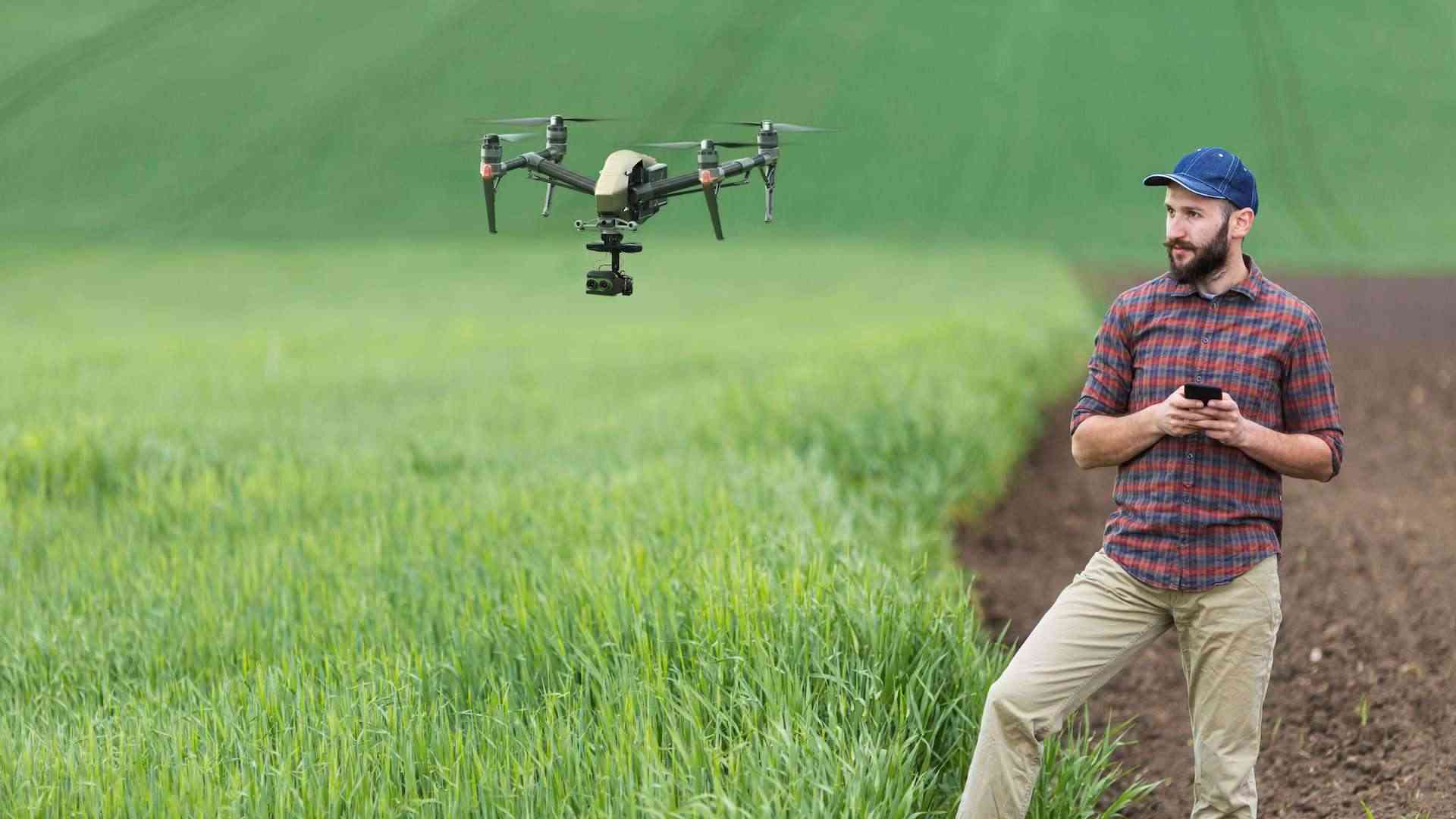| | | | | | | Presented By Ericsson | | | | Axios Login | | By Ina Fried · Nov 02, 2022 | | Time for the witty intro. ... Now, where did I put my witty. Keep reading and I'll find it. I know I had it yesterday. Today's newsletter is 1,245 words, a 5-minute read. | | | | | | 1 big thing: State broadband director is a new hot job |  | | | Illustration: Aïda Amer/Axios | | | | States are shoring up expertise in high-speed internet networks by creating or expanding broadband offices to prepare for an influx of infrastructure cash, Axios' Margaret Harding McGill reports. Why it matters: Ensuring that more than $40 billion in new funding connects every American to high-speed internet service is a job that's falling to the states — and they need help. Driving the news: Of all the job openings posted for states' burgeoning broadband offices, the "director" position is the most common vacancy, according to data the Pew Charitable Trusts shared with Axios. - Directors are often responsible for crafting state broadband plans and overseeing hundreds of millions in funding from multiple state and federal programs.
- The Pew tracker found 15 director-level positions posted, out of about 68 total positions since September 2021.
What's happening: The Broadband Equity, Access and Deployment Program (BEAD), funded by the bipartisan infrastructure law, will provide $42.45 billion to expand high-speed internet access by funding planning, infrastructure deployment and adoption programs in all 50 states, the District of Columbia, Puerto Rico and U.S. territories. State of play: Before the pandemic, about half of states had a broadband office. - Now, all 50 states have some sort of program, and many are trying to expand, Anna Read, a senior officer with Pew's broadband access initiative, told Axios.
- "Many of these offices were one or two-person operations prior to the availability of federal funding," Read told Axios. "Many states are hiring now, and growing the size of their offices to manage the federal funding."
Between the lines: States have been able to use federal funding from COVID relief packages to start their broadband offices or add people to them. - "All of this is sort of growing in anticipation of this big pile of money that's coming from the infrastructure act, that hasn't gone out the door yet," Lynn Follansbee, vice president at broadband industry trade group USTelecom, told Axios.
Zoom in: Louisiana passed a law in 2020 creating its Office of Broadband and Connectivity, and hired the first executive director for broadband development and connectivity last year. - In about a year, the state dedicated $170 million in funding expected to connect 80,000 locations to internet service via a new program.
- "We hit the ground running," Connect Louisiana executive director Veneeth Iyengar told Axios. "We've probably crisscrossed the state three times over. We've met with thousands of people, all to better understand what the situations are for broadband locally."
Zoom out: Some states already had been using state funding for broadband ahead of the pandemic, but with federal dollars flowing, states are trying to make sure they're ready. - "The whole goal of this program to make sure that every single American has broadband," Follansbee told Axios. "Regardless of whether it's a small number in your state or a big number, you've got to make that happen — and quickly."
|     | | | | | | 2. Microsoft reports climate-skilled worker need |  | | | Photo Illustration: Sarah Grillo/Axios. Photo: Cody Glenn/Sportsfile for Web Summit via Getty Images | | | | Although nearly 4,000 companies have made pledges to reduce their emissions, many lack the skilled workers needed to meet those goals, Microsoft president Brad Smith tells Axios. Why it matters: In order to reduce carbon emissions, companies need employees with a range of new skills, including a deep understanding of how supply chains work as well as the ability to properly account for how much carbon a company is emitting. Driving the news: Microsoft is releasing a report Tuesday highlighting the need for more workers with specialized training in environmental issues. - To date, most of the companies leading in sustainability work have staffed their efforts from their own ranks and lack specific expertise at the field. That approach, Smith said, won't suffice as projects scale up.
- "In the history of civilization, few generations have needed to do as much in as little time as we must do now," Smith writes in a letter accompanying Microsoft's report.
The big picture: Smith says he is concerned that efforts to address climate change keep taking a back seat to other priorities. - "Even though this is a decade of multiple short-term crises, like COVID and now a war in Ukraine, it's imperative that we stay focused on the climate crisis," Smith said in an interview Monday.
- A weakening economy could also threaten both new and existing climate-related commitments. "It's understandable that businesses will feel pressure to cut back in certain areas, but the world cannot afford to wait for faster action to reduce carbon emissions," Smith said.
Between the lines: Smith said Microsoft has learned a variety of lessons from its own work and that of its customers. Some are highly specific — such as converting kitchens and cafeterias from gas stoves to electric. - Smith said that another key has been an internal "carbon tax" system that gives Microsoft's business units a financial incentive to cut emissions.
- But some of what's needed is just a mix of common sense and a willingness to take action. "The fastest way to get ahead is to get started," he said.
|     | | | | | | 3. Startup puts VR in the back seat of a car |  | | | Image: Holoride | | | | Using a virtual reality headset while riding in a car sounds like a recipe for nausea, but one startup is betting it's an experience people will pay for. Driving the news: Holoride, an Audi spin-off, is launching a $700 software and hardware combo Wednesday, with an HTC Vive Flow headset and a game controller that synchronizes games and videos to the motion of a car. Why it matters: Virtual reality is still searching for its market, and while car seats may sound like an unlikely place for it, there are a lot of teenagers being driven around by their parents out there. How it works: Holoride gets data from the car via Bluetooth and uses the turns and twists of the road as action within its built-in game. For video viewing, which can be mirrored from Android phones, the system uses the data to stabilize the image. - Initially Holoride will work on a range of Audi models, but the goal is for the system to work with a wider variety of cars.
- Holoride will be available in mid-November in Germany and the company expects to launch it in the U.S. in early 2023.
First person: I had a chance to try out Holoride last week and found it quite comfortable. - It was entertaining to see the gameplay shift as the car made turns around my neighborhood.
- But I'm not sure how long I would be interested in playing "Cloudbreakers," the lone first-person shooter game that the company has customized to incorporate the car's motion.
|     | | | | | | A message from Ericsson | | Fair patent licensing keeps mobile innovation moving forward | | |  | | | | Innovations in mobile technology have created new digital experiences. Through Ericsson's creation of cellular standards, we have pioneered the technology that drives connectivity and continues to lead the way for advancements still to come. Explore the importance of patents. | | | | | | 4. Take note | | On Tap - Web Summit continues in Lisbon, Portugal.
- Today's earnings reports include Qualcomm, Roku and eBay.
Trading Places - Several more Twitter leaders have left the company, per Bloomberg's Kurt Wagner, including chief marketing officer Leslie Berland, product general manager Jay Sullivan and engineering general manager Nick Caldwell.
- Andres Wydler plans in February to step down as executive director of LGBTQ entrepreneurship group StartOut.
ICYMI - The Council on Foreign Investment in the U.S. should ban TikTok, FCC commissioner Brendan Carr told Axios. (Axios)
- Amazon is shutting down its Treasure Truck deal-of-the-day program, which had shifted during the pandemic from a physical truck selling goods in cities to an online-only offering. (Axios)
- The developer of the widely used open-source code library OpenSSL released a patch to resolve two high-risk security vulnerabilities. (Axios)
|     | | | | | | 5. After you Login | | After a day filled with candy, is anyone ready for ... a vending machine full of salad? |     | | | | | | A message from Ericsson | | How patents fuel innovation | | |  | | | | Patents help facilitate the sharing of knowledge and technology. Why it's important: Patents and licensing allow companies like Ericsson to continue investing in research and development, resulting in technology that benefits everyone. Learn about the value of patents. | | | | Thanks to Scott Rosenberg and Peter Allen Clark for editing and Bryan McBournie for copy editing this newsletter. |  | | Are you a fan of this email format? It's called Smart Brevity®. Over 300 orgs use it — in a tool called Axios HQ — to drive productivity with clearer workplace communications. | | | | | | Axios thanks our partners for supporting our newsletters. If you're interested in advertising, learn more here.
Sponsorship has no influence on editorial content. Axios, 3100 Clarendon Blvd, Arlington VA 22201 | | | You received this email because you signed up for newsletters from Axios.
Change your preferences or unsubscribe here. | | | Was this email forwarded to you?
Sign up now to get Axios in your inbox. | | | | Follow Axios on social media:    | | | | | |







No comments:
Post a Comment